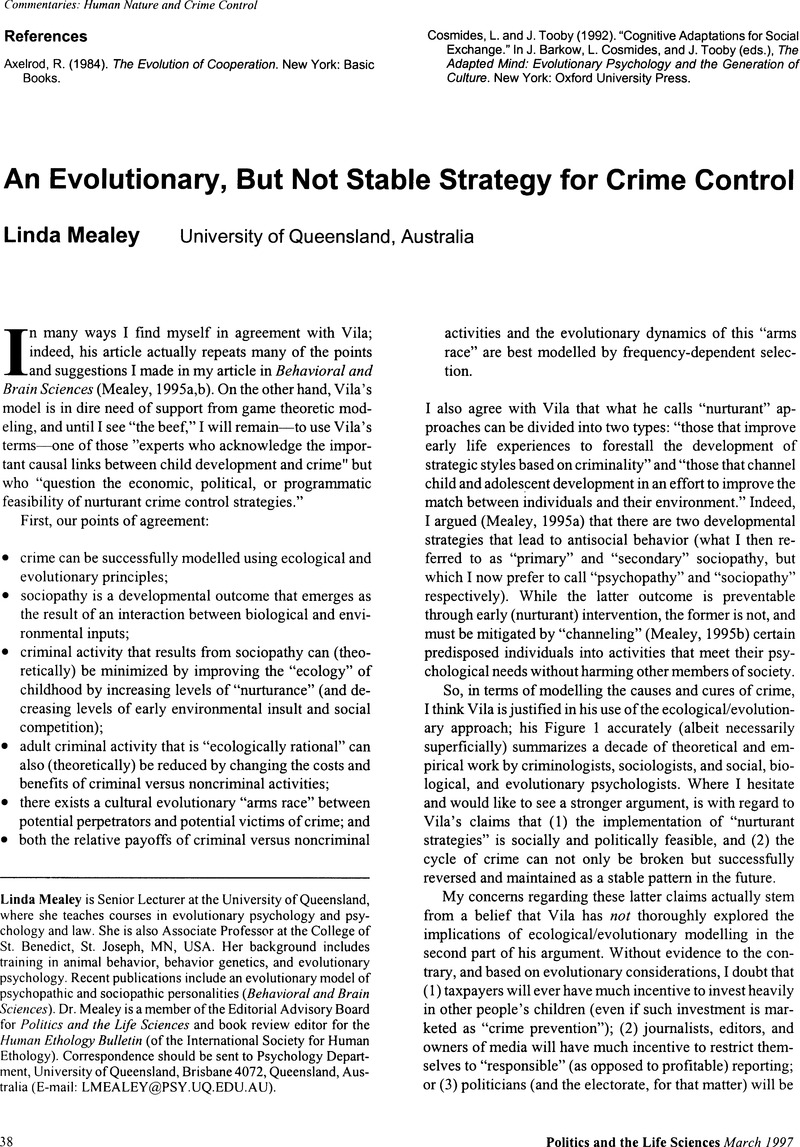Crossref Citations
This article has been cited by the following publications. This list is generated based on data provided by Crossref.
Savage, Joanne
and
Vila, Bryan
2003.
Human ecology, crime, and crime control: Linking individual behavior and aggregate crime.
Biodemography and Social Biology,
Vol. 50,
Issue. 1-2,
p.
77.


